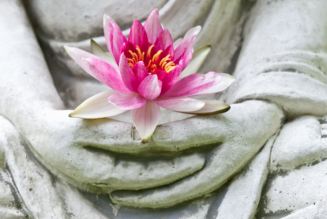3 Tips For Healthy Living
The ancient science of Ayurveda has described health to be a state of perfect balance. Likewise, it’s very intuitive to acknowledge that this state of health and balance is brought about by maintaining a certain lifestyle in accordance with nature.
Cause And Effect
Although the world seems to be more unpredictable by the day – we know that disease often does not just appear from nowhere. Commonly, before any of the obvious signs and symptoms of disease appear there are often more subtle expressions of disease which are present – yet, unfortunately overlooked. In the same manner, if we were to come across a tree in the forrest we know with certainty that there was once a seed and fertile ground for that seedling to sprout and come to full bloom. So true with disease according to the teachings of Ayurveda.
3 Tips For Healthy Living
1. Food and Diet
2. Seasonal Changes
3. Stress – Emotional Concerns
“If diet is wrong, medicine is of no use.
If diet is correct, medicine is of no need”
– Ayurvedic proverb
1. Food and Diet:
In ancient times food was considered medicine. This being the case, people valued food much differently then. For example, considerations such as from whom and where we buy our food, the state of mind when preparing and eating food all matters and has subtle effects upon our state of health and well-being. Therefore, always seek out locally grown organic sources of food and eat in a peaceful manner in order to help nourish your body and mind.
Likewise, from an ayurvedic perspective, the setting which one eats should be as clean and pure as a sacred temple. This same sense of austerity should also be projected upon oneself [i.e. state of mind] when eating. Also, when eating we should eat with a balanced state of mind in order to appeciate the nourishing qualities we introduce into our body. Finally, ayurveda considers the unique needs of each individual – such as “vata”, “pitta”, and “kapha” individuals. Therefore, in order to help maintain health and balance we should learn to eat accordingly to these very needs.
2. Seasonal Variation:
The teachings of Ayurveda explain that each person is a reflection of nature. Just as nature has seasonal variations of fall, winter, spring and summer – so too do we also reflect these same variations from within. More simply, as nature changes throughout the seasons – so too shall we adjust in order to stay balanced despite seasonal variations.
Below are simple examples on how to stay more balanced even despite seasonal changes. After all, we are a reflection of nature and the seasonal variations in nature also reflect within both our body and mind.
FALL:
Fall is often associated with qualities such as dry, light, cool, rough, and windy. Therefore in order to remain balanced and promote health during fall season we should consider introducing more warm, soothing, and easily digestible meals [i.e. warm soups] into one’s daily routine. This is the season to keep warm and avoid the gusty winds which can lead to increased dry qualities within. This dry and rough quality of nature may expresses itself within as constipation, dry and rough skin, and irritation to the eyes – these are just a few basic examples.
WINTER:
Winter, on the other hand, is known to be cold, damp, cloudy, and heavy. As mentioned above – according to Ayurveda, we are considered a miniature reflection of nature. Also, Ayurveda explains a concept of “like increases like” – which means the increased cold quality of winter for example will also increase the cold quality within; hence the tendency to catch a “cold” during winter. Therefore, in order to remain balanced during winter season we should consider something as simple as drinking more warming herbal teas [i.e. ginger and cinnamon tea] … just like grandmother used to make. Yes, your grandmother was correct as she likely understood seasonal variation.
SPRING:
Interestingly, from an Ayurvedic perspective, spring is the king of all seasons because this is the season which Mother Nature seems to wake up and spring forth. The quality of spring is moist and full of energy. This is the season where snow of winter begins to melt, flowers develop a full range of color, and birds sing joyfully. Because of all this, spring is the season of allergies, “spring colds”, and hay fever. Therefore, during spring we should consider focusing on removing this excess quality of ‘moisture‘ [i.e. allergies, cold & congestion] from within. Just as we ‘spring clean’ our home during this season, it is advisable to consider spring cleaning the body with an Ayurvedic practice called “panchakarma”. Panchakarma is a purification cleansing process only to be performed under the guidance of a trained professional provider.
SUMMER:
Summer is well known for being hot, sharp, and bright and it is intuitive to balance these “fiery” qualities with something cool, soothing, and refreshing. Therefore, summer is a time to enjoy cooling herbal teas such as CCF tea [cumin, coriander, fennel] and enjoying cooling meals such as a simple salad. Likewise, you may also want to cool down with applying cool coconut oil as a daily massage.
3. Stress – Emotional Concerns:
With the world moving at an increasingly faster rate than ever before it is to no suprise that mental health is becoming more relevant in present day. It is well established in the science of Ayurveda that our health and well-being are centered around factors involving both the body and mind. It is becasue of this that Ayurveda recommends a daily routine [i.e. Dinacharya] which consists of consuming a nourishing diet, establishing positive and loving relationships, and devoting time for meditation and contemplation to help alleviate and prevent the occurence of stress.
Some Basic Benefits Of Meditation:
– greater clarity and inner calmness
– increased creativity and happiness
– improved sense of emotional stability
– reduced level of anxiety and depression
– improved brain function and memory
– reduced level of stress
… the list can go on and on …
“Sleep is the best meditation” – Dalai Lama
Although the above quote may not be technically correct, it does stress the importance for sound sleep.
Click Here: 8 Tips For Sound Sleep



![Female Health: Amenorrhea [cessation of menses] – An Ayurvedic Perspective](https://healthyayurveda.com/wp-content/uploads/2015/07/1.-Amenorhea--327x219.png)




